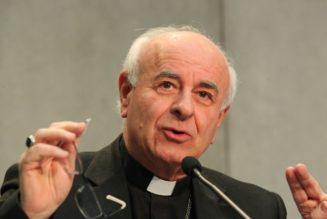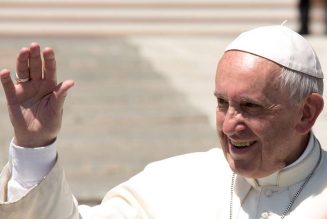
After Taub replied that there are “compulsory education laws” in the state, Thomas did not appear to be convinced by the state’s argument that religious schools do not qualify to fulfill this requirement.
“So you require them to go to school and you, in certain areas, you don’t have schools available,” said Thomas. “So if you require them to go and you don’t have schools available and you make provisions for them to comply with that compulsory law, then how can you say that going to a particular school is a subsidy?”
Justice Samuel Alito asked if a parent could opt to send their child to an elite private school, such as Phillips Exeter Academy, or Miss Porter’s School, with the town tuitioning program. Taub replied that they likely could, and that education at those schools would be the “rough equivalent of a public education.”
Alito also asked Taub if a school with a religious affiliation that taught values such as nondiscrimination and charity, but without “dogma,” would be eligible for the state’s tuition assistance program.
Taub said this kind of religiously-affiliated school would be “very close to a public school,” and that “public schools often have a set of values that they want to instill.”
“I think what the defining feature, or what would make the difference, is whether children are being taught that your religion demands that you do these things,” he said.
This, Alito said, constitutes discrimination on the basis of religious belief.
“What I described is, I think, pretty close to Unitarian Universalism, isn’t it,” asked Alito. “So that religious community is okay – they can have a school that inculcates students with their beliefs because those are okay religious beliefs – but other religious beliefs, no. Is that what Maine is doing?”
Taub did not give a definite answer.
At one point, he provided a hypothetical to clarify his position.
“If there were a school that was – that was – that was run by an organization that felt it was critical to have part of the program be to inculcate religious beliefs, if – if that school otherwise provided a public education, and let’s say it had chapel services and a class that was intended to instill religion, if – if those classes were optional, it’s likely that that state – that that school would – would be eligible for the Maine tuition program,” he said. “What the state is not going to provide public funding to is a school that is going to require students to take part in programs that are intended to instill religion.”
(Story continues below)
Later, Malcolm Stewart, the deputy solicitor general of the U.S. Department of Justice, spoke.
“We are not trying to tell the parents what they should do with their children,” he told Justice Gorsuch. “The question is not whether you can be denied the unrelated benefit based on your faith or based on your religious practice. It’s whether the government has to subsidize the religious practice itself.”
Justice Brett Kavanaugh challenged Stewart’s position.
“But, at its core, Mr. Stewart, you’re suggesting that with, say, two neighbors in – in Maine, in a neighborhood, and they both – there is not a public school available, and the first neighbor says we’re going to send our child, children, to secular private school, they get the benefit,” he said. “The next-door neighbor says: Well, we want to send our children to a religious private school, and they’re not going to get the benefit.”
“And I don’t see how your suggestion that the subsidy changes the analysis,” he continued. “That’s just discrimination on the basis of religion right there at that – at the neighborhood level.”
At another point, he added, “I think it’s important on this public discord or strife issue to emphasize that, as I understand it, they are seeking equal treatment, not special treatment. They’re – they’re saying don’t treat me worse because I want to send my children to a religious school rather than a secular school. Treat me the same as the secular parent next door. I think that’s what they are asking for, is equal treatment.”
Join Our Telegram Group : Salvation & Prosperity





